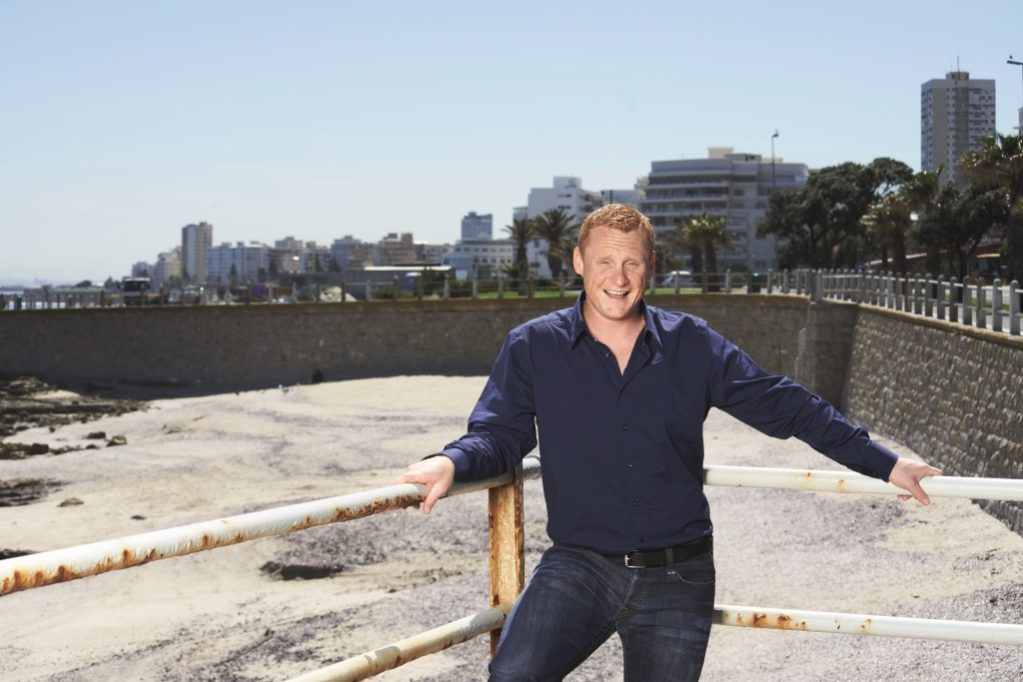At the age of 20, Rob Stokes was sitting in his room at university, thinking of how he was going make pocket money. Then it came to him—why not follow in Mark Shuttleworth’s footsteps and start a business? Thirteen years later that company, called Quirk, has a $10 million turnover and an unusual name.
“I was literally lying on the couch, thinking I need to start a business… I looked over at my cat and her name was Quirk and I thought ‘That’s an unusual word, it’s short and I’ll probably get the domain name’ and off I went. So Quirk is actually named after my cat. I’d like to have something more fancy to tell you but that’s the reality,” says Stokes.
Stokes is an easy going roller. His backpack contains nectarines, apples and pumpkin seeds along with documents and magazines. He says it has nothing to do with being a health enthusiast; he just likes to eat on-the-go. A decade ago, when Quirk was still in its infancy, Stokes was so broke that all he had to eat were carrots.
“I once had nothing but carrots for two weeks, true story. I actually went yellow around my mouth, and I’m already orange so it was really weird… But hell if you’ve got no money, what choice do you have?”
For the first five to six years, he was so broke his parents paid his rent. The fact that his friends were earning fat salaries in the corporate world frustrated Stokes, at times, but his entrepreneurial spirit kept Quirk alive. He was inspired by a lecture given by South African entrepreneur and millionaire Mark Shuttleworth, who was also the country’s first space tourist.
Loading...
“…I didn’t get to meet him but he was massively inspiring… And I remember watching that lecture and I thought, ‘I can do that. I can be that guy’. I’m definitely not as smart as him, I definitely know that, but I’m entrepreneurial.
“I’d [also] been reading about a guy called Michael Dell, from Dell Computers. He started in his dorm room, he cut the door in half so he could sell computers over the counter, and I just thought, ‘That’s an awesome story’. So I was kind of inspired by those guys,” says Stokes.
Stokes is described as inspiring by one of South Africa’s respected journalists and ICT commentators, Arthur Goldstuck.
“Initially [Quirk] struck me as just another SEO, then I saw the book he wrote and realised he’d become one of the thought leaders in the online marketing environment and not just an SEO,” says Goldstuck.
The term Search Engine Optimization (SEO) refers to the process that companies, such as Quirk, use to get a company’s name read more often by those searching on search engines such as Google and YouTube. The aim is to increase a website’s popularity by gaining more hits.
Quirk has branches in Johannesburg, Cape Town and London and employs 200 but in the early days things were different.
“I remember the first client who came to our offices; he was just blown away because it was the filthiest office in the world. Our ‘boardroom’ was about five chairs, none of which were the same, around a beer crate, with a tray on it… I think he appreciated that we were doing our best, so he gave us a piece of business…”
“There are many times when, if we hadn’t landed a piece of business within a week or two, we would have gone bankrupt,” says Stokes.
Stokes is also the chairman of the Silicon Cape Initiative, a private sector community movement founded by two South African hi-tech entrepreneurs, Vinny Lingham and Justin Stanford. The initiative wants a community of entrepreneurs, the best tech talent and foreign investment.
The Western Cape Province has produced some of the country’s brightest tech entrepreneurs including Stokes; Lingham—who lives in Silicon Valley in California; Herman Heunis—founder of MXit and Ludwick Marishane, who was recently named one of the 12 brightest young minds in the world in 2011, by Google.
Stokes thinks that more could be done.
“My biggest frustrations at Silicon Cape is actually how few university students start businesses… it creates an opportunity cost to become an entrepreneur because a [graduate] leaves UCT and suddenly Old Mutual pay him R40,000 ($5,000) a month. So now becoming an entrepreneur is not only about risking what you have, it’s about risking what you could have.”
It irritates Stokes that the tech business is not yielding more. An unreliable internet connection and bureaucracy are just a couple of problems that Stokes sees in the way.
“Internet connectivity [is a] huge issue. I mean, business would be much bigger and more successful now, on a global level, if there was better internet. So the more customers there are online, the more [our] kind of marketing is going to be of value.”
As for bureaucracy, when he registered his business in South Africa he filled his form out with a blue pen. The form stated black pen only, so what would’ve have taken him three months, took six.
“When I first registered the Quirk cc, it took me six months. When I first registered the limited company in London it took me 24 hours… Is it worth holding back a small business for three months because they used the wrong color of pen?”
What is his tip for upcoming tech entrepreneurs?
“Hitting the road and selling the stuff, that the best thing you can do when you’re young. Don’t wait.”
The thirty three-year-old’s next dream is not to be a space astronaut; in the next ten years he wants to open a cricket academy in the Transkei in the Eastern Cape.
“I want to be remembered for my cricket school, it’s going to be the greatest cricket school in the world”.
It seems like a quirky plan
Loading...
